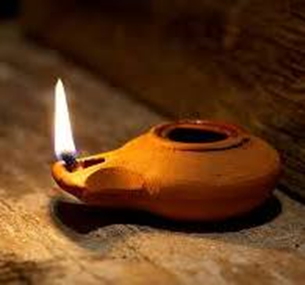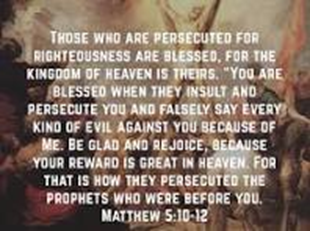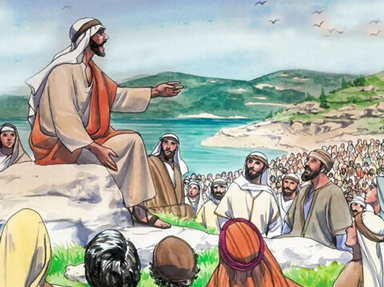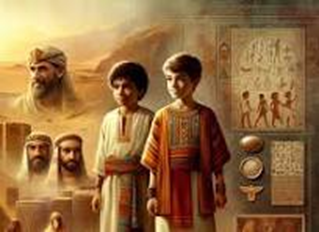
Matthew 5:13-16 “You are the salt of the earth. But if the salt loses its savor, how can it be made salty again? It is no longer good for anything, except to be thrown out and trampled by men. You are the light of the world. A city on a hill cannot be hidden. Neither do people light a lamp and put it under a basket. Instead, they set it on a lampstand, and it gives light to everyone in the house. In the same way, let your light shine before men, that they may see your good deeds and glorify your Father in heaven.”
Jesus is a small-town boy speaking to friends and neighbors from small towns. When these folks go to the synagogue, the rabbis mutter and mumble and delight in esoteric teachings, but Jesus talks about stuff that everybody knows. Today, Jesus is discussing salt and light, and he begins by describing scenes with which everyone in the audience is familiar.
Last night, Jesus stayed with friends in Capernaum, and they were complaining to him how much it had been raining recently. Due to all the humidity, everything item of cloth had become damp and mildewed, including clothing, blankets, and towels. Even woven reed mats were becoming mildewed and stinky. This morning a new problem has arisen, leaving women of the village even more frustrated. Salt is a precious commodity that everybody needs, for food without salt is tasteless and unappealing. Entire caravans travel thousands of miles to bring salt to various places. In some cultures, salt is so prized that it takes the place of money.
This morning when the women of the village check their spices, the salt has absorbed moisture, becoming caked and tasteless. These women are bracing themselves for the complaints they know their families will make-after all, food without salt is bland and unappealing. Until these ladies can save enough money or produce something with which they can barter to buy more salt in the market, they must throw out the worthless salt and do without it. Husbands in the village are complaining about their wives wasting such a precious resource until one of the women challenges her husband to taste the spoiled salt. The man immediately spits out the salt, agreeing that the salt has indeed lost its flavor.

If salt is a precious commodity, so is olive oil, particularly oil pure enough to be burned in the small local clay lamps. Oil with impurities will smoke and spit sparks as it burns rather than burning with a steady clear flame. Many towns are built on hills for safety’s sake, and in the evening, weary travelers can see the lights of the households, showing them the way to a place of rest. In an otherwise dark world, the lights of those cities shine long distances, and everyone knows that hiding them would be impossible.
In many humble village homes, there are only a few lamps and housewives will place them on lampstands so that one lamp can light an entire room. Nobody in their right mind would ever consider lighting a lamp and then covering it with a basket! What would be the point?
There are no secrets in small towns, for part of the entertainment is always talking about the neighbors and everyone knows everybody else’s business. Small town people know the character of those around them because they work together, play together, trade in the marketplace together, etc. The ladies all know the market women who hide rotten tomatoes in the bottom of the pile in hopes of palming them off on an unsuspecting buyer. The men know the fellows who promise to help with harvest, only to disappear when the day comes. And everybody knows the families who are raising their children properly and those who are letting their children run wild, creating problems for everyone else.
So far, Jesus is talking about commonplace daily life. Now comes the actual teaching. “In the same way, let your light shine before men, that they may see your good deeds and glorify your Father in heaven.” Jesus is reminding his audience that their friends and relatives and neighbors are watching their behavior closely. When a woman always sells good fresh produce in the market, when a man performs his work as well as possible, when a family’s children are helpful and well-behaved-all these things are just as satisfying as flavorful salt or bright lights in a dark place.
Jesus’ audience is used to the religious elite parading in and out of the synagogues, making a big show of their ritualized good deeds. But here Jesus is advising people that when they behave virtuously in their daily lives, everyone around them will observe their behavior and give glory to God because of it. At this point, many of those listening may be thinking, “What? Who me?” These folks are accustomed to a series of religious duties but nobody has ever told them that they can glorify God simply by doing their daily work as well and as honestly as possible. This idea is revolutionary.
Eighty-six years ago, a missionary in northeastern Ghana was building the first mission house in that area on top of a high hill. Most nights, this man camped near the construction site, and local farmers who had gone to the bush could see the lights of his camp and navigate back to their homes by watching those lights. But one night, the missionary returned to a government rest house where his wife and children were staying. That night, one local farmer wandered in the bush all night for lack of a light by which to navigate. The next morning this man confronted the missionary, demanding to know why the missionary had not lit any lamps the night before. The missionary used this incident to lead this man to a saving knowledge of Jesus Christ, the light of the world.

In the early 90’s, our village had no electricity, so we all had to use charcoal irons to iron our clothes. These irons had side ports through which the air could pass to keep the charcoal burning; however, if the charcoal came from soft wood, it would smoke and spit sparks. One morning Peter, our physician assistant, reported to the clinic but then disappeared and did not return for two hours. When Peter finally returned, I asked what had happened. It seems that just after I saw Peter, a patient vomited all over his uniform and Peter had to go home to change. But when Peter was ironing a clean uniform, the charcoal iron kept spitting little pieces of charcoal all over it, leaving black marks on his fresh uniform. It took all that time for Peter to be able to iron the uniform and clean off the charcoal marks.
Whether or not we realize it, people around us are watching us closely to see the quality of our behavior. It is a well-known fact that the ethos of a corporation depends on the behavior of its leaders. If leadership behaves righteously, others will generally fall in line. But unrighteous leadership signals all those below that anything goes and that they can steal and cheat. After all, the top leaders have set that example. May we do our daily tasks to the glory of God, remembering that we never know who might be watching and who might be encouraged or discouraged by our example!
PRAYER: Father God, thank You for loving us and for caring for us. Lord, help us to always do our work to Your glory, no matter how mundane that work might be. Help us to remember that when You call us to do something, it is a holy calling and that the nature of the work is far less important than the nature of the call. In the matchless Name of King Jesus. Amen.












